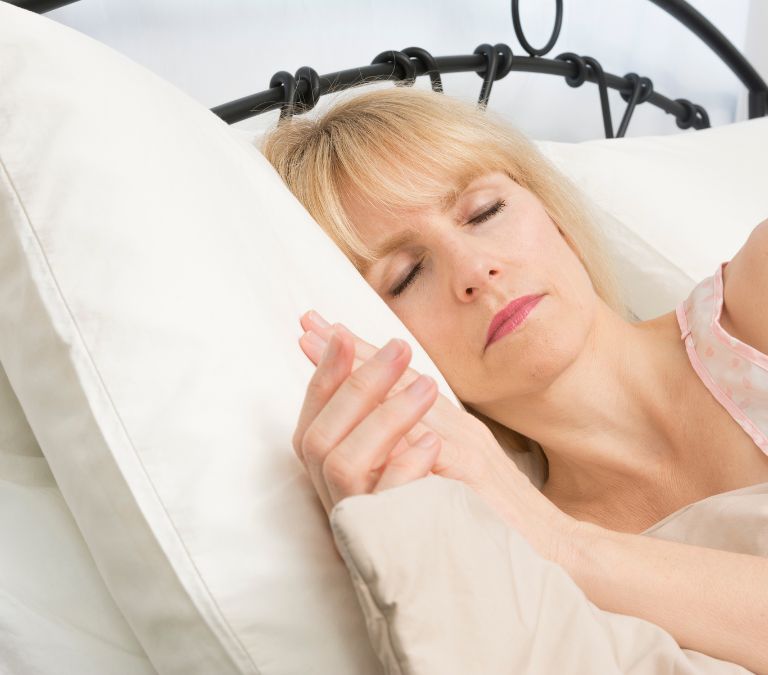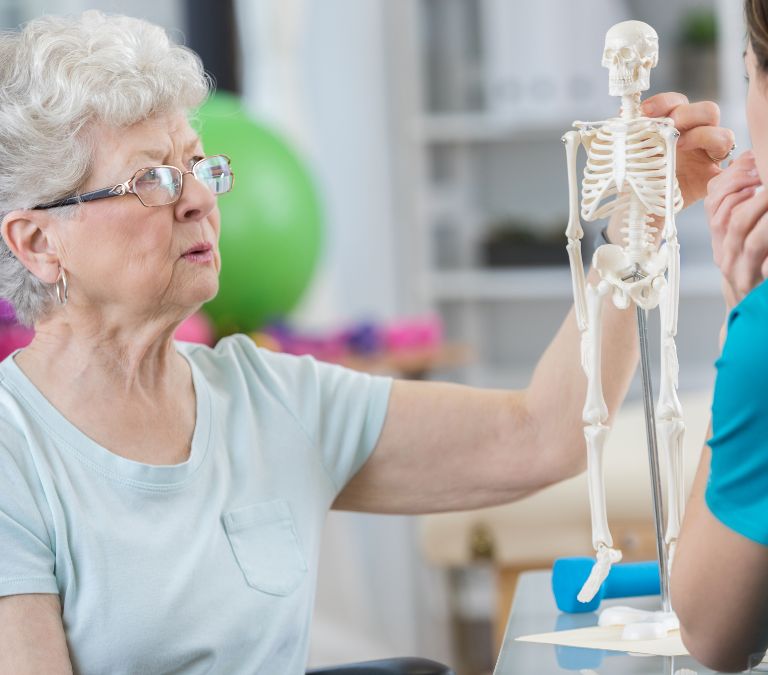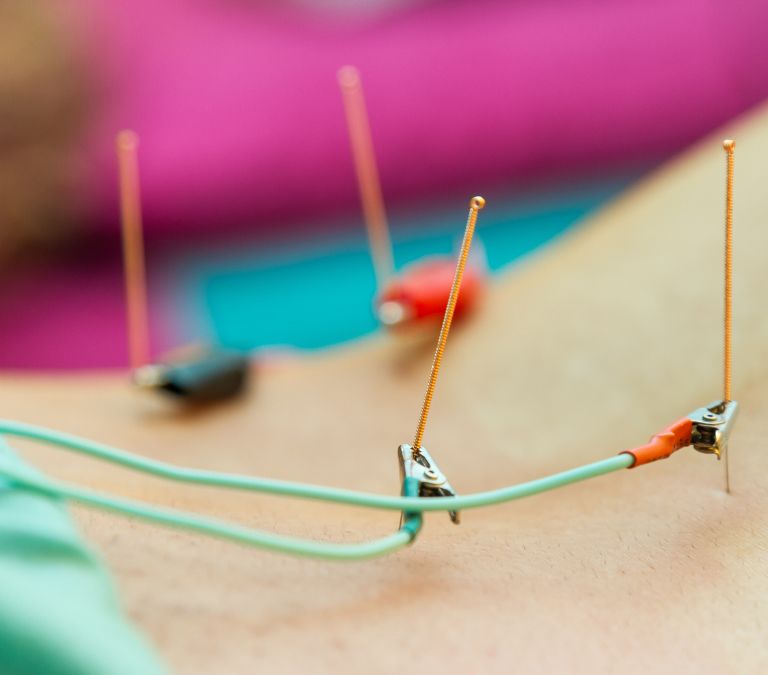Menopause comes with detrimental symptoms capable of jeopardizing specific aspects of a woman’s life. No need to panic, though; we can handle it…right?
You may have experienced or heard of one or two of these symptoms. But do you know all of it? While hot flashes and night sweats remain the most common, menopause still has so many other things in the mail waiting for us to unbox. These symptoms include depression, anxiety, vaginal dryness, sleep distortion, and weight gain. We can see how menopause affects our mental health, emotional health, and even sex life. How could something so natural be highly unpleasant?
Today, more women in the mid-ages of their lives complain of symptoms relating to menopause than they are of other illnesses.
Menopause and Its Effect on Productivity
For so many menopausal women around the world, the period of menopause is the time to breathe fresh air and embrace what relief means finally; freedom from the stress of childbirth. After all, who wouldn’t want to get to that stage of not including sanitary pads in their groceries? For good reasons, menopause is not bad, but we often expect to see only the good stuff. When the bad things come, we are left broken and clueless about the next step.
Taking the United States as an example, the quality of life of so many women depreciates on getting to menopause. I experienced severe mood swings, which contributed negatively to my business. It could be low productivity from not getting enough healthy sleep for others.
Your friends and family may not understand what you are going through or provide all the support you need during this phase, and this could lead to low self-esteem, depression, increased stress, and every other mental issue you can think of.
Mental health issues remain a lingering problem for many women in the United States; sadly, little to nothing is being done about it.
During the peak of my menopausal symptoms, I complained so much of hot flashes that I was becoming a complainer. It came at the wrong time because, at that point, I was determined to ensure flawless productivity at my new salon. I got to work late; I took breaks directly in front of the AC to deal with the burning temperature I kept on feeling in my chest region, my face got red often that people often thought I was blushing, and I slept when I felt sleepy, which came during work hours; not at night.
Common Symptoms and Its Effects on Women
To the outside world, these symptoms are typical symptoms that everybody goes through, at least for a period of their lives. However, the impact of these symptoms on a woman’s life can be excruciating and lead to low productivity and relatively low quality of life.
Here are five common symptoms and their effects on the life of a menopausal woman.
Hot Flashes and Night Sweats
Collectively known as vasomotor symptoms, hot flashes and night sweats are the most common symptoms experienced by menopausal women today. The burning sensation in the chest region could be very discomforting and trigger mental issues like mood swings.
About five years ago, I just opened my new salon and wanted to take back all I had spent on acquiring the new place. It was going quite well until menopause came, and this time, with anxiety and mood swings as its sidekicks. I couldn’t comprehend how it happened, but I knew I had routine waves of hot flashes and night sweats.
The hot flashes continued for a long time, and my sheets were always soaked with sweat whenever I woke. I always left the bed with feelings of anger, anxiety, fear, and panic in the morning. It affected my productivity at the salon.
During that time, coping with work was difficult, and I couldn’t reach my goals in my new place.
Irregular Sleeping Pattern

Healthy sleep breeds a healthy mind. When you don’t get good sleep, your body will go through ugly experiences.
The ovaries are the leading producers of the estrogen hormone in women. As you approach menopause, the functionality of the ovaries begins to reduce and eventually diminishes. With the ovaries now gone, the estrogen hormone becomes ineffective, leading to the symptoms we experience during menopause. The irregular sleeping pattern has become one of the leading symptoms experienced by women in menopause. Many of us turn to sleep pills to get the sleep we got freely during our reproductive years.
In April 2020, the coronavirus became something to worry about, and we were all asked to remain indoors. At this period, my sister-in-law, Dawn, entered perimenopause and was already complaining of some distortions in the regular metabolic pattern of her system.
She overslept sometimes, and some other times, she couldn’t get any sleep. It became so bad that she took sleeping pills when conditions like the former arose. From sleeping distortions, issues regarding her blood pressure came up, which was when she took a break from her work as a journalist.
Before this break, one ugly incident that still haunts us was her appearing to doze off while reporting an event in front of Capitol Hill. Too bad menopause caused it. But with this, we can see how these symptoms of menopause could further affect your productivity at work.
Vaginal Dryness
I think menopause is doing too much by coming close to our sex lives. Usually, the vaginal walls are permanently lubricated by a layer of clear fluid. The hormone estrogen influences this natural lubrication. While estrogen affects the appearance of secondary sexual characteristics in women, it also helps maintain the fluid that keeps the vagina lubricated.
When the estrogen level declines, the moisture content in the vagina also decreases. At this point, the vagina becomes dry, and intercourse becomes painful. I don’t know about you, but a dry vagina is worse than a migraine; yes, I said that.
Due to this dryness of the vagina, you might become erotophobic, which means the fear of sex or intimacy. This fear damages your sex life, but it also damages your self-esteem and can, in turn, lead to depression. During sex, your body releases dopamine and oxytocin, and these hormones help reduce stress and help you perform better at work.
As a remedy, you can opt for using lubricants licensed and approved by the FDA.
Weight Gain
Most women do not fancy the idea of weight gain at any point in their lives. Unfortunately, menopause makes you more susceptible to it. However, it is essential to know that menopause has not been proven directly responsible for weight gain.
In animal studies, estrogen is believed to help regulate weight gain. In these animals, a drop in estrogen is also observed to cause an increase in appetite and decrease the tendency to engage in exercises and other physical activities.
This trait is also believed to exist in humans. The drop in estrogen levels during menopause could cause slower metabolism and ineffective use of blood sugars and starch in the body. It, in turn, leads to increased fat storage and difficulty losing weight.
Rapid weight gain leads to low self-esteem and increases the body’s vulnerability to diabetes, heart disease, and many cancers.
Osteoporosis

Osteoporosis is the weakening of the bones. For menopausal women in the mid-ages of their lives, osteoporosis could be devastating, especially to their jobs and well-being. Imagine getting a fracture just by climbing the stairs? Or being unable to go jogging out of fear of breaking a bone? That’s what osteoporosis entails. Osteoporosis weakens the bones and makes you susceptible to sudden fractures.
My mother was a public school teacher regarded as one of the best in her county. She loved her school so much that she went to the same school even when she relocated to a place farther than her last place. At age 49, she complained of pains in her knees, back, and hip.
Before she got to 53, she was already using a private car to go to school, not public transport. Before she reached 55, the repercussions of osteoporosis jeopardized her plans to retire at 60, as she could not handle the repercussions. My mother retired at 55, even when she still had many things to tick off her bucket list.
In today’s society, innovations in education, recreation, transport, and every sector of the world might make people wonder how the medical industry is catching up. Fortunately for us all, the medical industry is no stranger to innovations. When my mother complained of menopausal symptoms, there were medications she could take, but they weren’t famous, not very effective, and, of course, not cheap.
Many treatment options for menopausal symptoms are available to get effective results. One of these treatments that have become widely accepted today is Hormone Replacement Therapy (HRT).
Hormone Replacement Therapy
HRT is a popular treatment option used for relieving symptoms of menopause. Hormone replacement therapy is done by replacing hormones that are at lower levels. HRT is typically taken to reduce the effects of menopausal symptoms on women going through menopause.
HRT helps in replacing hormones that have become low due to menopause. There tends to be some hormonal balance in the body with this. The fluctuations of vital hormones in the body of menopausal women are the main reasons for so many uncomfortable menopausal symptoms.
With HRT, you can kiss bye-bye to menopausal symptoms like hot flashes, night sweats, bloating, vaginal dryness, weight gain, osteoporosis, irregular sleeping pattern, etc. If a hormonal imbalance caused the sign, HRT could treat it.
HRT is very beneficial to menopausal women. Living with menopause can sometimes be difficult, but you could go through a smooth menopausal transition without experiencing complications with this treatment option.
For women who have productivity issues with menopause like me, Dawn, my mom, and many other women worldwide, HRT is an escape plan for zero or minor complications from the problems of menopausal symptoms.
Generally, there are two types of Hormone Replacement Therapy, including estrogen-only HRT and combination HRT. While the former contains the estrogen and progesterone hormone, the latter has only estrogen.
Estrogen-only HRT will only increase your risks of developing breast cancer when used for as much as ten years. On the other hand, combination HRT can increase your risk of developing cancer by as much as 75%. Even if this HRT is used for a short time, the bets still stand. Also, there is a high chance that combination HRT will increase the likelihood of breast cancer being diagnosed at an advanced stage. It also increases the probability of death from breast cancer.
Hormone Replacement Therapy is very beneficial in helping to cure vaginal dryness but can be lethal when its connection to breast cancer and other diseases is analyzed.
Acupuncture

As an alternative medicine and a subsidiary of traditional Chinese medicine, Acupuncture is generally used as pain relief. Acupuncture involves inserting thin, solid, and metallic needles into the skin. These needles are activated by making gentle and specific movements by the practitioner or via electrical stimulation.
In ancient Chinese culture, it is believed that the human body contains specific meridians and pathways linked to more than 2,000 acupuncture points. These pathways or meridians are believed to create an energy flow throughout the body and help determine an individual’s overall health.
It means that the disruption of this energy flow could lead to diseases. Traditional Chinese medicine practitioners believe that applying Acupuncture to these acupuncture points can improve the energy flow, which improves health.
Various studies show that Acupuncture is very effective for different conditions, including menopausal symptoms. Menopausal women who opted for Acupuncture as a treatment option for their menopausal symptoms reported significant reductions in the occurrence of these symptoms compared to menopausal women who didn’t take Acupuncture at all. About 80% of menopausal women who underwent Acupuncture felt it helped reduce their symptoms.
With this, the question remains, how does Acupuncture do it?
How Acupuncture Can Help Menopausal Women
As stated earlier, Acupuncture is alternative medicine, and today, many physicians have adopted this bizarre technique for various ailments. Scientifically, Acupuncture is regarded as a quacky medical procedure with no solid basis for operation. However, we cannot ignore the testimonies of patients who have used Acupuncture as an alternative for treating illnesses when medical procedures become ineffective.
A study conducted in 2019 observed that five weeks of Acupuncture could alleviate symptoms like hot flashes, night sweats, and even vaginal dryness. So many women today do not fancy the use of Hormone Replacement Therapy for dealing with their menopausal symptoms. After all, its side effects are very pronounced and detrimental if you look at it. People are turning to this traditional Chinese technique to help ease the results of these symptoms.
A study conducted in 2019 observed that five weeks of Acupuncture could alleviate symptoms like hot flashes, night sweats, and even vaginal dryness.
Acupuncture is not magic. It operates by taking advantage of the complex physiological system of the body. For example, it can alter the brain’s transmitters to cushion conditions related to anxiety and nervousness. Also, Acupuncture can stimulate the release of chemicals that thwarts hormonal imbalances that cause vaginal dryness and hot flashes.
How to Find a Reliable Acupuncturist
Since acupuncturists deal with the body, you must get the best for you. For this reason, licensing is necessary. If barbers and movers can have licenses, you must check out for the approval of an acupuncturist before settling for one. Acupuncturists in the United States are licensed and certified by the National Certification Commission for Acupuncture and Oriental Medicine.
After checking for licensing, ask the acupuncturist about the results of treating conditions similar to menopausal symptoms and how often they treat them. If these questions aren’t answered, you should find another acupuncturist.
After Dawn insisted on finding an alternative other than HRT, we went on a hunt for acupuncturists. We noticed the vast number of acupuncturists in the United States and how only a few ticked the boxes during this period.
Like your personal doctor, you have to relate well with your acupuncturist. After all, that person will be piercing your skin with numerous needles, and you don’t want complications.
When all of these are considered, you can settle for an acupuncturist.
FAQs On Acupuncture and Menopause
Here are some common questions asked by menopausal women considering going for Acupuncture to cushion the effects of menopause on them.
Do Acupuncture Needles Hurt?
Most people do not feel any pain during and after Acupuncture. The needles used are skinny and, most times, do not go further into the nerve. However, people with susceptible skin complained of mild pain during the process and vague soreness afterward. Also, the part of the body where the needles are punctured can determine the degree of pain you feel. For example, areas of thick skin like your palm and sole could get more painful reactions than other areas like your back and belly.
How Long Should I Continue Acupuncture?
It depends on your body’s reaction to it. Acupuncture is known to have a short-term effect, and because of this, and because of this, you should aim to have an appointment with an acupuncturist once a week. If your body shows a positive and lasting response, you can opt for it once in two weeks. For more clarity, it is essential to keep your doctor involved.
Should I Go for Acupuncture Even When There Are No Symptoms?
During menopause, symptoms are bound to show. However, some women do not get any severe symptoms, and others only experience symptoms once or twice. While Acupuncture can help alleviate these symptoms, it is essential to know that Acupuncture can also be used as a form of therapy and a relaxation mechanism. It means you don’t have to experience symptoms before opting for it. However, menopausal women don’t need to see an acupuncturist.
Is Acupuncture as Effective as HRT?
No, Acupuncture isn’t as effective as HRT. HRT remains the best treatment option after lifestyle changes. The accuracy and effectiveness of HRT are second to none. However, the side effects associated with using HRT have made many women in the United States seek other options to deal with their menopausal symptoms.
What Are the Side Effects of Acupuncture?
The side effects of Acupuncture are infrequent but do exist. Some side effects include drowsiness, bruising or bleeding, pain where the needles penetrate the skin, feeling dizzy and sick, and worsening pre-existing symptoms.
Conclusion
So many women today are indecisive on the whole concept of menopause. Is it a good thing? Is it not? While menopause comes with age, it is essential to know that aging is good as not everyone gets the opportunity to thrive on earth for many years.
However, this indecisiveness is not surprising, owing to the symptoms that come with it; from vaginal dryness to night sweats, reduced sex drive to hot flashes, the period of menopause can sometimes be challenging and challenging to cope with.
Menopause is a natural transition and not an illness. However, different women give different reactions to this phenomenon. For this reason, we must know what to expect and how to react to these changes when they begin to show. Take care of your body. It is the only place you have to live.







